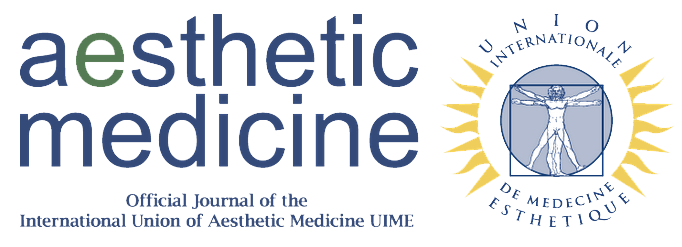Exploring serendipitous relief: SSRIs as a potential treatment for aphthosis - a case report
Keywords:
case report, Aphthosis, SSRIsAbstract
Recurrent aphthous stomatitis (RAS) is a common and challenging inflammatory condition of the oral mucosa. The aetiology of RAS is multifactorial, and effective management options are currently limited. This case report explores an unexpected finding in the treatment of RAS, focusing on a patient treated with selective serotonin reuptake inhibitors (SSRIs) for anxiety and social phobia who experienced the resolution of aphthous stomatitis symptoms. A young male patient (LR) with infrequent periods of obsessions and compulsions, along with social phobia and panic attacks, was prescribed a daily dose of 20 mg of paroxetine. Remarkably, LR ceased experiencing episodes of aphthosis approximately two months after starting treatment. The improvement in RAS symptoms has been sustained for a duration of four years. This case report presents a unique finding in the management of RAS, with SSRIs, particularly paroxetine, demonstrating an unexpected collateral effect on the resolution of aphthous stomatitis symptoms. Previous reports have primarily involved monoamine oxidase inhibitors (MAOIs), and literature lacks clinical trials specifically evaluating the efficacy of SSRIs in treating aphthous stomatitis. Further research is warranted to elucidate the underlying mechanisms and establish the efficacy of SSRIs in larger-scale clinical studies. The collateral improvement of RAS symptoms in a patient being treated with an SSRI suggests a potential alternative treatment approach for this challenging condition. However, given the limitations of this single case report, further research is necessary to replicate these findings and evaluate the safety and efficacy of SSRIs in managing RAS.
References
Femiano F, Lanza A, Buonaiuto C, et al. Guidelines for diagnosis and management of aphthous stomatitis. Pediatr Infect Dis J. 2007;26(8):728-732. doi:10.1097/INF.0B013E31806215F9
Edgar NR, Saleh D, Miller RA. Recurrent Aphthous Stomatitis: A Review. J Clin Aesthet Dermatol. 2017;10(3):26-36. Accessed June 8, 2023. https://pubmed.ncbi.nlm.nih.gov/28360966/
Belenguer-Guallar I, Jiménez-Soriano Y, Claramunt-Lozano A. Treatment of recurrent aphthous stomatitis. A literature review. J Clin Exp Dent. 2014;6(2). doi:10.4317/JCED.51401
Gavic L, Cigic L, Biocina Lukenda D, Gruden V, Gruden Pokupec JS. The role of anxiety, depression, and psychological stress on the clinical status of recurrent aphthous stomatitis and oral lichen planus. J Oral Pathol Med. 2014;43(6):410-417. doi:10.1111/JOP.12148
Rosenthal SH. Aphthous stomatitis. J Am Acad Dermatol. 1982;7(5):689. doi:10.1016/S0190-9622(82)80238-7
SH R. Does phenelzine relieve aphthous ulcers of the mouth? N Engl J Med. 1984;311(22):1442-1442. doi:10.1056/NEJM198411293112216
Yeragani VK, Pohl R, Keshavan MS, Gershon S. Are tricyclic antidepressants effective for aphthous ulcers? J Clin Psychiatry. 1987;48(6):256. Accessed June 8, 2023. https://pubmed.ncbi.nlm.nih.gov/3584086/
Downloads
Published
Issue
Section
License
Copyright (c) 2023 Luca Gambolò, Giuseppe Stirparo, Marta D'Angelo

This work is licensed under a Creative Commons Attribution-NonCommercial 4.0 International License.
This is an Open Access article distributed under the terms of the Creative Commons Attribution License (https://creativecommons.org/licenses/by-nc/4.0) which permits unrestricted use, distribution, and reproduction in any medium, provided the original work is properly cited.
Transfer of Copyright and Permission to Reproduce Parts of Published Papers.
Authors retain the copyright for their published work. No formal permission will be required to reproduce parts (tables or illustrations) of published papers, provided the source is quoted appropriately and reproduction has no commercial intent. Reproductions with commercial intent will require written permission and payment of royalties.

This work is licensed under a Creative Commons Attribution-NonCommercial 4.0 International License.





